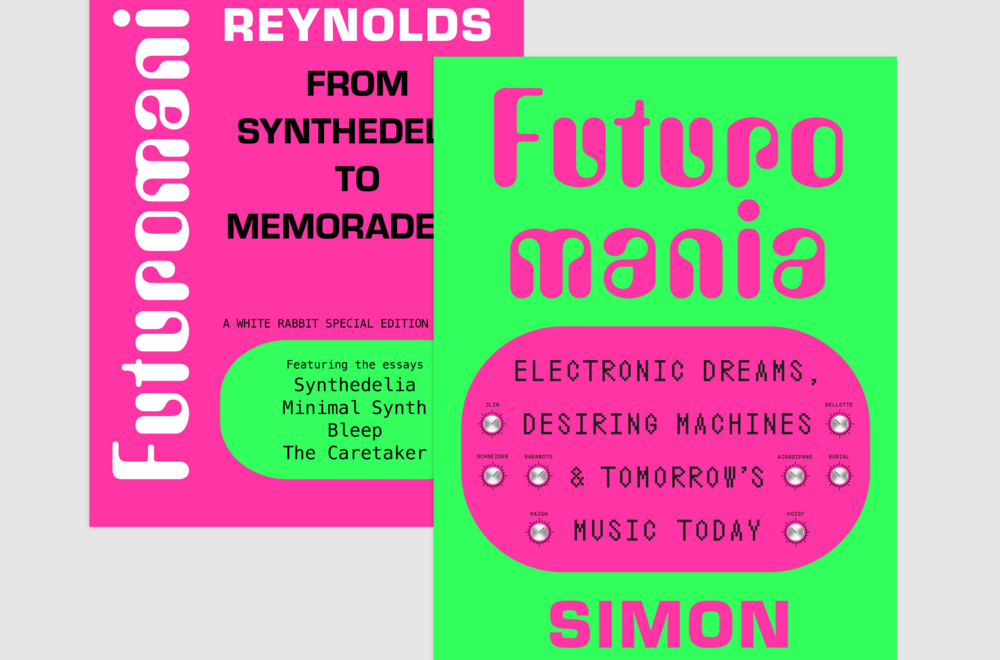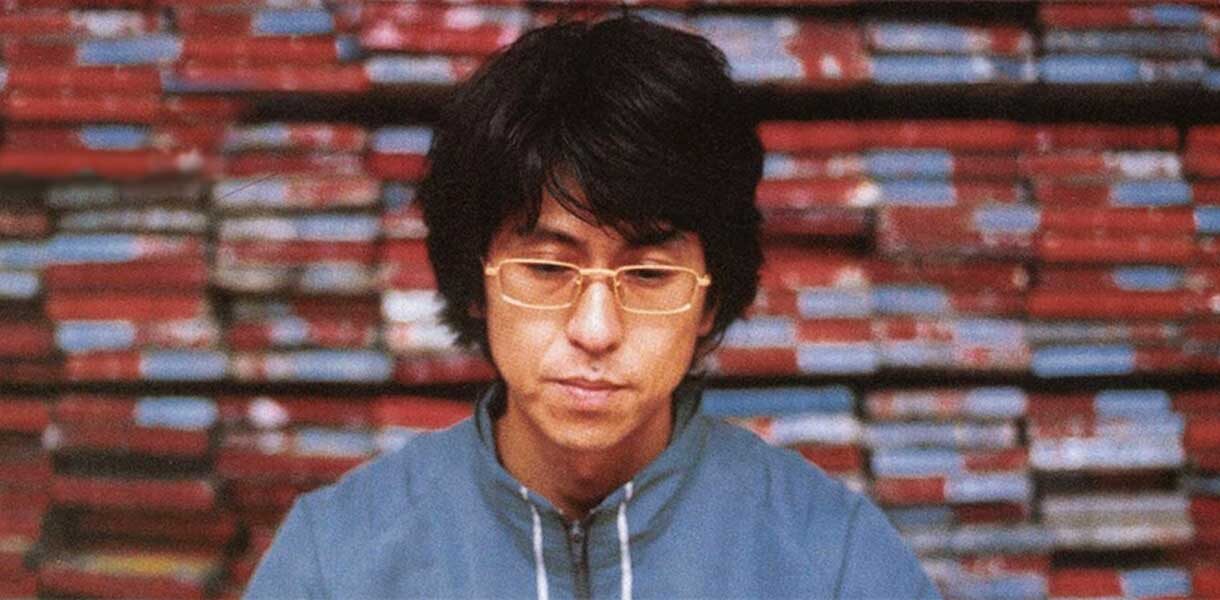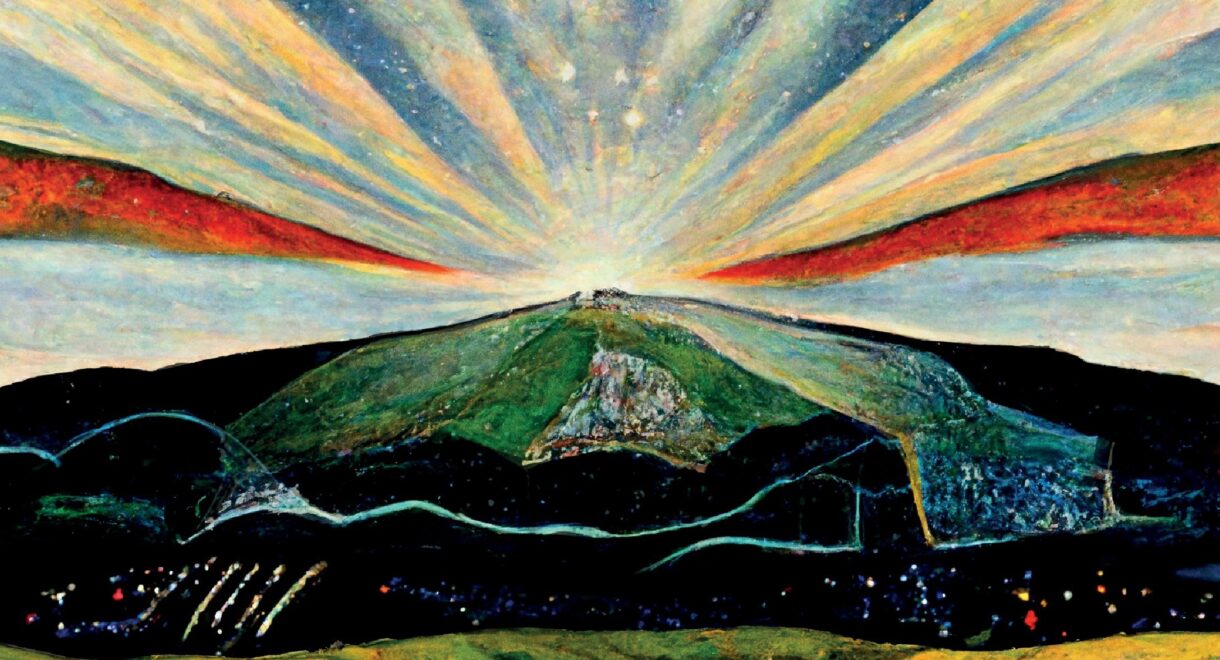The summer is halfway over and you’ve been scrolling for like, what, six weeks straight now? Step away from your phone (after reading this, of course). An analog […]
Susumu Yokota’s Songs of Joy, Anger, Sorrow, and Happiness

Ambient selections from the deep discography of influential Japanese electronic producer Susumu Yokota.
Where to start with Susumu Yokota.
When asked about his mission in making music, the late Japanese electronic producer-composer Susumu Yokota cited Hayao Miyazaki’s classic anime film Princess Mononoke, whose tangled themes on love, beauty and nature capture the essence of life.
“I’m trying to achieve that beautiful thing,” Yokota, who died in 2015 at 54, told an interviewer in 2000. “There is always fear, rage, and ugliness existing behind beauty. I have been trying to express ki-do-ai-raku (the four emotions: joy, anger, sorrow, and happiness) through music. I would like to express even one’s hidden emotion with reality. It’s my eternal goal.”
The Tokyo-based artist devoted his time and creative energy to achieving this goal, and the result is a vast discography that begins with banging early acid house tracks in the 1990s, moves across the next two decades to include deep house and Detroit-influenced techno, a stunning run of ambient electronic albums and, in his last decade, a glorious confluence that wove his various skills into a series of borderless electronic records.
The circumstances surrounding Yokota’s death are something of a mystery. When he passed in 2015, his family waited a few months to announce the news, and then cited a long illness as the cause. What exactly he suffered from is yet unknown, but it may explain why his output slowed starting in 2012.
Leaf label owner Tom Morley recounts: “I only met Yokota three times, twice in the UK and a third time when I visited Japan in 2001. Yokota drove me (sometimes at alarming speed) through the endless sprawl of Tokyo and Yokohama to the tranquil city of Kamakura, where we visited ancient Buddhist and Shinto shrines and an extraordinary vegetarian restaurant (a rarity in Japan) that only served variants of tofu (it tasted immeasurably better than that sounds). Later we visited an onsen (hot spring baths), a real Japanese treat. Though he spoke very little English, he was always a charming and thoughtful companion. A sign on a harbour wall in Japanese and English we saw on the trip inspired the title of a Leaf compilation: ‘Watch for tsunami when you feel earth quake’, an instruction that would haunt me years later.”
Yokota’s discography is deep, especially when you start digging into pseudonymous 12-inch releases as 246, Anima Mundi, Ebi, Frankfurt-Tokio-Connection, Prism, Ringo, Stevia and Yin & Yang. The majority of these releases are ripe for rediscovery and many command steep prices.
We’re focusing, however, on his ambient records. Starting in 1998, Yokota released a series of albums for his own label, Skintone, that he licensed to the British label Leaf. These are profoundly kaleidoscopic records, many of them double albums, that shift with each listen based on mood, volume and magic.
Below: A Yokota primer.
Image 1983-1998 (1998)
It’s hard to pile enough superlatives on Yokota’s first album for Skintone/Leaf. Including, per the title, Yokota’s early experiments with sound and voice manipulation, melody, texture and rhythm, it’s an otherworldly listen that seems beamed from another universe. For those looking for Yokota immersion, this is a good place to start because in his later disco-house years, he used some of the tracks on Image as source material.
Sakura (1999)
Considered by many to be his best ambient record — it’s definitely the most sought-after — Sakura was a favorite at ISC’s former home in the Arts District. A delicate mix of electronic tones dense with reverb, echo and looping, gradually shifting textures, this double album possesses enough emotional energy to upend your here-and-now and carry you to a better place.
1999 (1999)
During one interview during Yokota’s time with Leaf, an interviewer asked whether he’d abandoned dance music for this gentler stuff. He replied that he was “still producing house and want to continue for a long time. It feels natural for me to do both dance and ambient, it’s a balance that exists within me.”
So allow us this one flat-out house banger. In 1999, Yokota released an album of the same name that connected 130 bpm house with aggressive, disco-driven string arrangements. The sequel to the equally funky album called 1998, legend is that those who experienced “On and On” on a crowded dancefloor lived the rest of their lives with mirror-balls for eyes.
Grinning Cat (2001)
Those of you not married to vinyl should know that Leaf Records has undergone an extensive CD reissue campaign, that many of his ambient records are available and they all sound phenomenal. Though Yokota is considered an electronic composer, he drew from acoustic tones and sampled natural sounds across his life. “Balloon in a Cage” seems constructed from sampled clarinet and detuned violin. A lot of other pieces are built around piano melodies.
Bamboo Data – J-phone. Tone Of Water, Colors Of J-Sky (2000)
A non-stop explorer, Yokota made deep drum & bass tracks and squiggly, speedy acid jams. Tuned into the Berlin techno scene, Yokota lived in Europe for years and played in the city’s annual Love Parade celebration. One of his early aliases, Bamboo Data, illuminates one of his many sonic angles.
Symbol (2004)
Yokota moved back to the suburbs of Tokyo after living in Europe, where he told one writer that he visited the mountainside a few times a week. ‘The smell of grass and trees, the air in the woods makes my mind clear,” he said, “‘and it gives good effects for making music. Walking amongst the big trees, I can hear my heartbeat and the echoes of the earth.’ For “Symbol,” Yokota didn’t mince words when it came to titles. Exploring philosophical ideas, myth and the natural world, tracks include “Song of the Sleeping Forest,” “Blue Sky and Yellow Sunflower” and “Symbol of Life, Love and Aesthetics.”
Love or Die (2007)
Yokota moved from Leaf to its parent label, Lo Recordings, in the mid-’00s, and when he did he seemed to shift toward a convergence of ambient and beat music. Love or Die one in a string of lush, sophisticated albums he issued during the final decade of his life.
Cloud Hidden (2019)
Thematically, Yokota knew what he wanted to convey, and Cloud Hidden, his mesmerizing posthumous 2019 release, beams in on it: “The Seven Secret Sayings of God,” like most of his work, is instrumental, and you can spend hours tracing which melodies, rhythms or tones are among those “seven secret sayings.” And, like most of his work, everything on Cloud Hidden is best heard at full volume.










